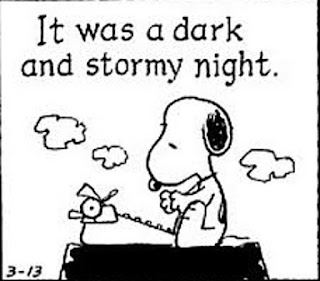Update: I'm up to 42,000 words in my new rough draft!
-------------------------------------------------------------------------
My fire photo book project has been handed over to Emily, who's working on getting all the photos ready and put in their proper place--a job I wouldn't wish on anybody. I mean, she has to go by my notes.
So that leaves me without much to do until she finishes her part, just in time for NaNoWriMo. That's National Novel Writing Month, November, in which authors are challenged to pound out 50,000 words on a novel (or some kind of writing) in just one month. I've won NaNoWriMo twice, coming out with the rough drafts for Summer Jobs are Murder and Fire On Mist Creek. (Both are finished but unpublished at the moment, but that's another story.)
I'm doing something different this year, but also something I've been wanting to do since I was a kid. I'm writing a novel set in a universe created by somebody else, specifically by Lyman Frank Baum, who can't complain because he passed away a hundred years ago.
It could be called fanfiction, which is a generalized term for fiction written using someone else's world and/or characters. That's popular but technically illegal, unless the work has passed into the public domain. In this case it has, which is why you've seen properties such as Wicked and Oz: The Great and Powerful.
By now you've figured out my novel is going to be based on the Oz books, by L. Frank Baum (not the MGM movie, which varies in critical ways from the book--don't get me started on "it was all a dream".)
 |
| "Pay no attention to that author behind the curtain!" |
This is something I've been wanting to do since I was a little kid, reading Baum's 14 Oz books over and over. For the last several years a more specific idea has been germinating, and now I'm going to take the time to finally do it, before it drives me crazy.
There's more than one way to approach doing an Oz adaptation, though:
You can stick slavishly with the original version, making it completely faithful. This can be very difficult, because Baum was writing kid's books, and the later ones reluctantly. He sometimes didn't concern himself all that much over continuity. If you try to stick to the details of all the canon Oz books--forty or so, by different authors--you'll make yourself insane.
Second, you can throw all that away and have something only loosely based on the original, such as the novel Wicked, or the TV show Emerald City. Baum, who was after all writing for children, wouldn't have recognized some of them.
Then there's whether you're going to write a children's book or one for adults. Probably the most difficult thing you could do is to follow the original books, yet make your own work be for older readers.
So that's what I'm doing.
 |
| You may be cool, but you'll never be "Ozma of Oz on a chariot being drawn by a lion and a tiger" cool. |
Naturally I'm not going to give you a lot of details, considering I have not only the rough draft, but weeks of revision and polishing to do before it's even ready to send to publishers (if we don't self-publish). My outline is done, but my outlines tend to change along the way.
What I will say is that the story will be meant for adults and young adults, with the conceit that Baum's Oz books were retellings of events that actually happened: But that the "Royal Historian of Oz", L. Frank Baum, was after all a storyteller first and foremost. In other words, he himself changed details to suit his stories, and to make them more suitable for children.
That explains such things as people dying in the first book, but later books staging that no one in Oz can die, just as an example. Otherwise I'm going for humor, action, magic, and a fun storyline. There will also be a few deeper questions, such as what kind of a personality a ten year old girl will have after living well over a century--and still being ten years old.
So, what do you think? Can I do this? And how badly could I screw it up?
https://www.amazon.com/-/e/B0058CL6OO
https://www.barnesandnoble.com/s/"Mark R Hunter"









